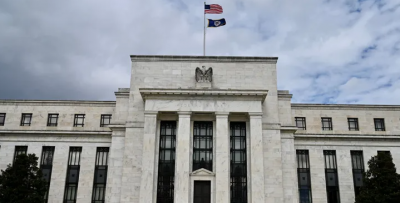The Federal Reserve (U.S. Federal Reserve) decided on Wednesday to raise the main overnight interest rate by 25 basis points to a range of 4.75% to 5%. However, it expressed readiness to increase rates further if necessary. On the other hand, it indicated that it is close to temporarily halting rate increases due to recent disruptions in financial markets triggered by the collapse of two American banks. The Fed noted that inflation remains high and that the banking system is "sound and resilient."
The U.S. Federal Reserve confirmed that it would continue its monetary tightening policy to curb inflation, mentioning that the labor market remains strong but economic growth is under pressure. The Fed stated that it has tools to protect depositors when the economy is threatened and is prepared to use them.
Federal Reserve Chair Jerome Powell stated that problems at individual banks could threaten the banking system if not addressed, and assured that depositor funds are safe, while also emphasizing that inflation remains high. He reiterated the Fed’s commitment to reducing inflation to 2%, though he acknowledged that measures to reduce inflation will take time. He also mentioned ongoing close monitoring and the use of all tools to keep the banking system safe and sound.
In a press conference following the Federal Open Market Committee meeting, Powell stated that "there will definitely be 100 percent independent investigations" regarding what happened with the banks, and the Federal Reserve welcomes these investigations while proceeding with its own. He commented on the acquisition of Credit Suisse, saying it appeared to be a positive outcome. The decision to raise interest rates was unanimous, marking the highest rate since 2006.
On another front, U.S. Treasury Secretary Janet Yellen urged Congress to raise the debt ceiling, warning of a financial and economic disaster if this does not happen. She stated, "We are focused on stabilizing the banking system and increasing public confidence in it." The collapse of Silicon Valley Bank (SVB) and Signature Bank triggered a wave of concern globally, prompting the Federal Reserve to intervene and provide U.S. banks with loans amounting to about $164 billion within a few days.




